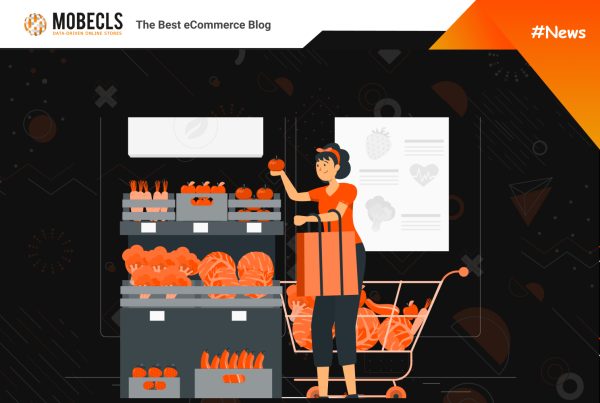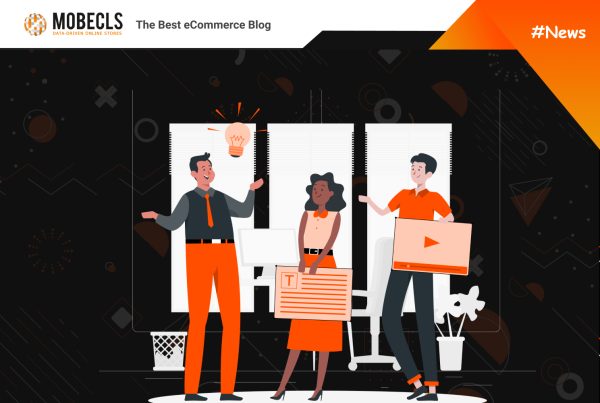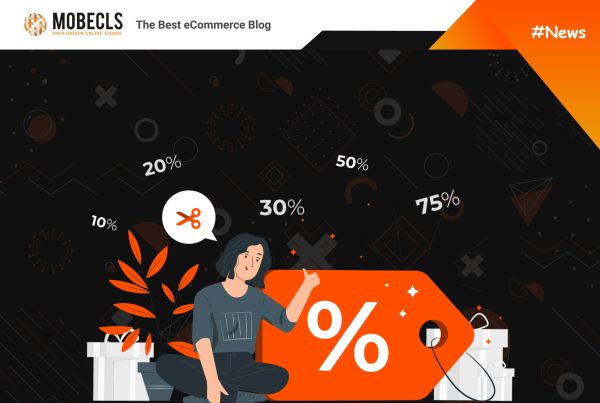The metaverse, spatial web, Web 3.0 — these are different names for the same concept; but whatever we call it, what does it actually mean?
Facebook CEO Mark Zuckerberg defines it like this: “You can think about the metaverse as an embodied internet, where instead of just viewing content – you are in it.”
Advancements and convergence in 3D, AR, VR, AI and 5G will enable the creation of a digital twin of the physical world, fully rendered in lifelike virtual environments, while at the same time allowing us to superimpose a digital layer onto the real world.
In this way, every object, store, conversation, image — everything has the potential to be integrated seamlessly into the metaverse and overlaid with additional data, enhanced with 3D/AR, or expanded, explored and personalized in a digital environment.
eCommerce Metaverse Benefits
With a paradigm shift this vast, it can be hard to visualize the real-world implications and use cases. So let’s walk through an example:
While having dinner at a friend’s house, you fall in love with their new sofa. Your AR glasses instantly display the brand, a list of retailers that have it in stock, price points, delivery times and more.
Through the same glasses, you enter the digital twin of your own house and visualize an exact 3D replica of the sofa in your virtual living room, allowing you to walk around it to see how it looks from all angles. You personalize it in almost any way imaginable – color, dimensions, material, etc – just by swiping your hands, and you invite your friend to join you in the virtual room via their own glasses, to get their opinion.
You decide you’re not sure, so your glasses bring up similar models from various retailers, selected by AI. You quickly find the perfect sofa and purchase it with your smart wallet, instantly completing the secure transaction, without the inconvenience of having to enter card numbers or delivery addresses – and without ever having left your friend’s dining table.
For retailers focused on the bottom line, this may sound like a long-game investment for another day – but that would be a misconception.
Much of the above example is already happening. Consumers are using AR to visualize furniture and other products in their homes as part of the purchase journey. 3D digital models allow retailers to offer a more engaging sales-experience, and allow consumers to customize products prior to purchase.
The benefits are already accruing for both sides. For consumers, it’s about convenience, confidence and control when it comes to making purchases online. Retailers, meanwhile, are seeing cost savings, sustainability benefits and considerable returns on their investments.
As we move closer to a realized metaverse, businesses that aren’t adapting will inevitably fall behind.
Tactical approaches to helping brands adopt, adapt, and transition to the Metaverse
In December 2021, Mobecls team hosted the eCommerce Tech Inspire Summit to discuss cutting-edge trends, new technologies, COVID impact, and other hot topics. During the summit, experienced eCommerce experts shared their insights, tips, best practices, and more. During the event, Mel Lim, a CEO of Maspira Groupe, delivered an excellent speech on eCommerce Metaverse adaptation.
About Speaker:
Mel Lim is currently the CEO of Maspira Groupe, an innovation consultancy focusing on product development, growth strategies, and brand experiences in B2B, B2C, AI, VR, SaaS, IoT, big data, cybersecurity, consumer electronics, luxury, retail, hospitality, V2X, food & beverage, robotics, and neuroscience. Mel recently completed a book entitled Turtle Design in a Rabbit Age. Published by CRC Press, her book offers a platform to help people achieve equanimity and find meaning in their work and lives through mindfulness, and companies to craft value by reframing their approach to impact creation and experience design.
Key Points:
- Pivoting a 2-D brand presence into a 3-D, brand-aligned experience
- Leveraging VR/AR/XR/NFTs for brand engagement and storytelling
- Developing a global, scalable XR program
- Understanding platform limitations and establishing success metrics
![]()
Mobecls team offers fixed-price service packages for Magento store support. Moreover, we’ll help you to choose a plan according to your business needs and specifics. A service package may include updates, the installation of modules, bug fixing, SEO support and many more. Contact us and we’ll help you.




